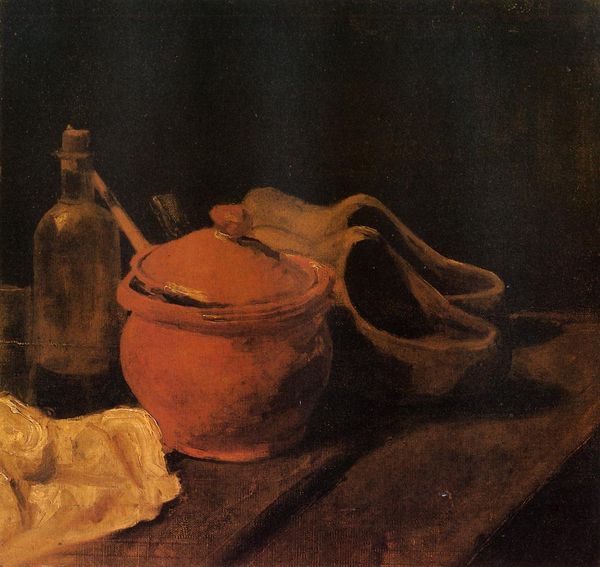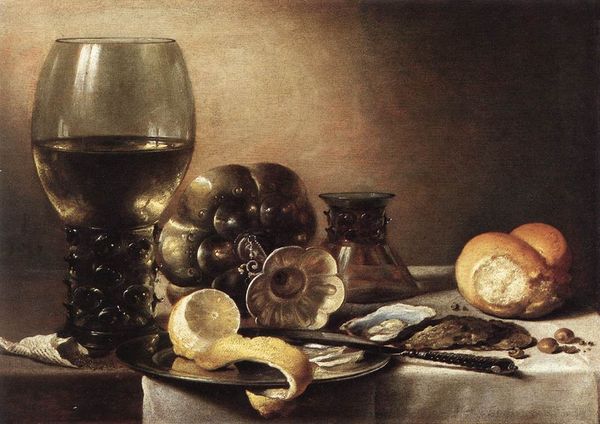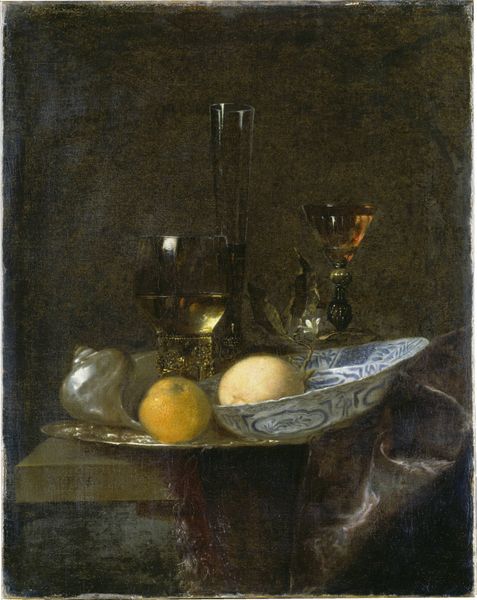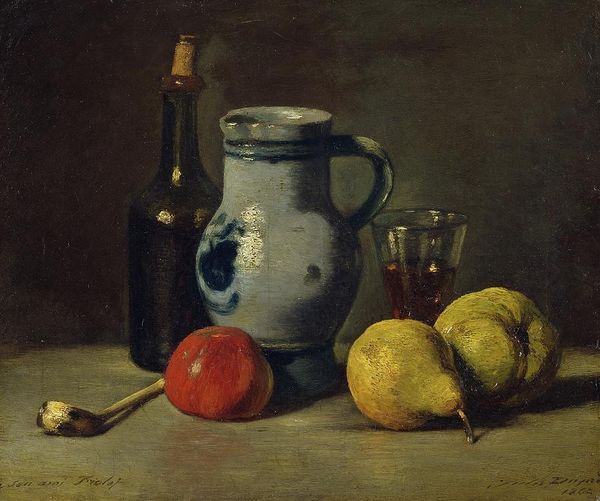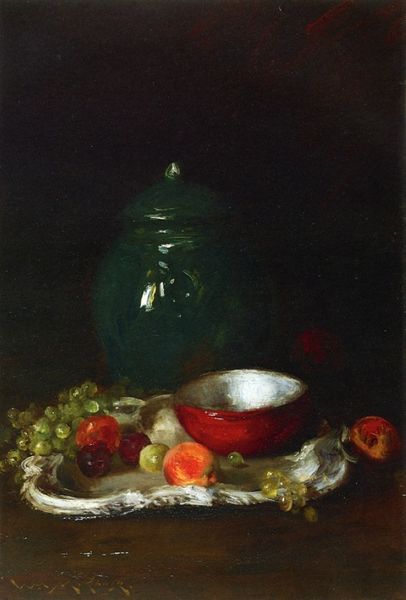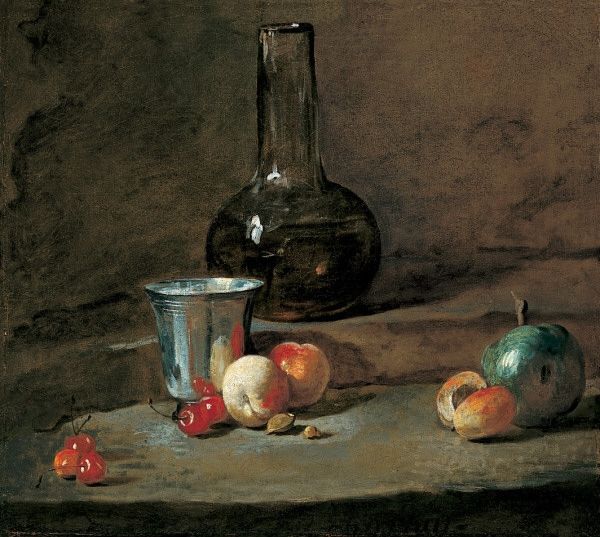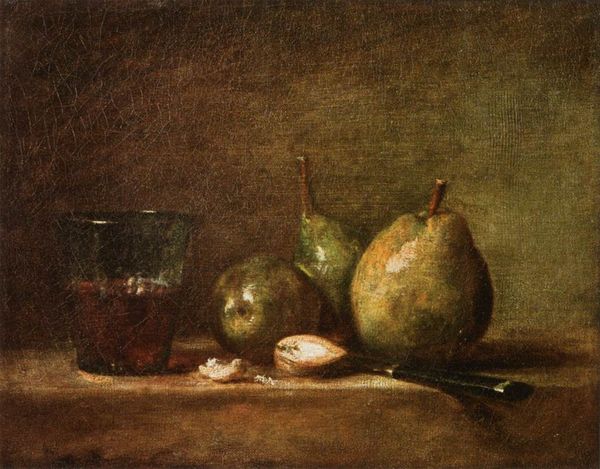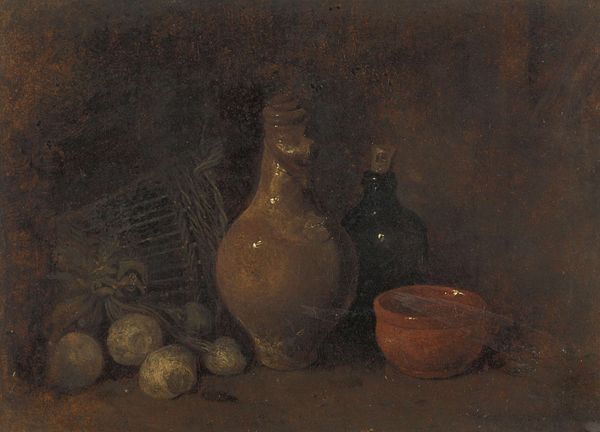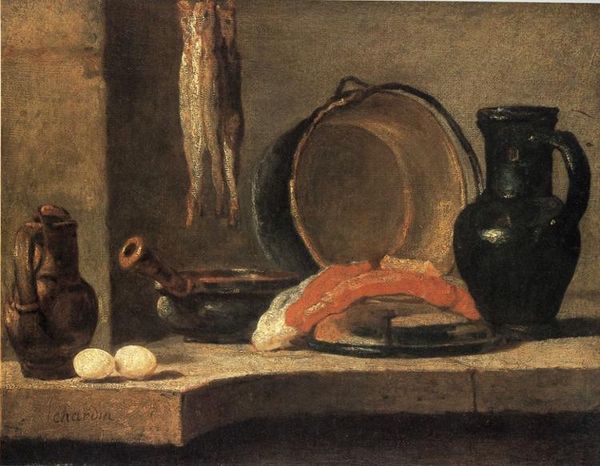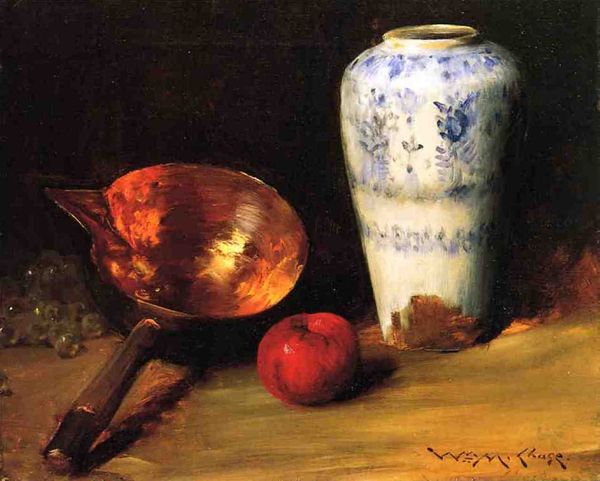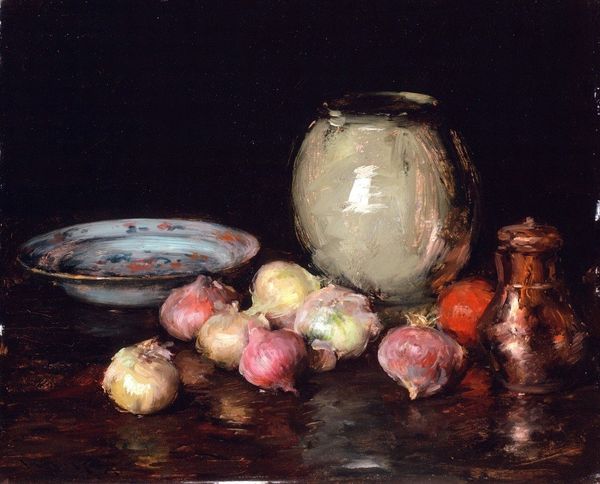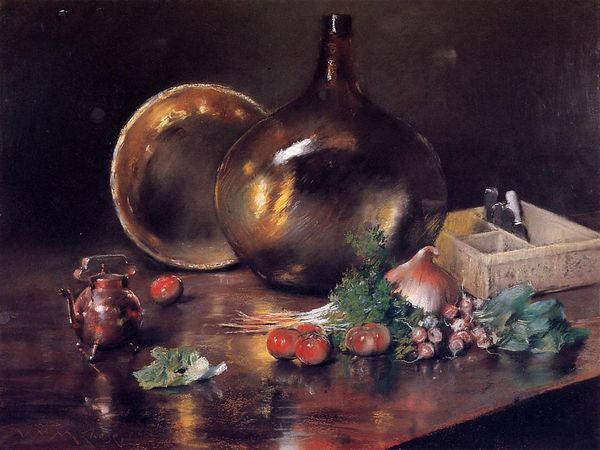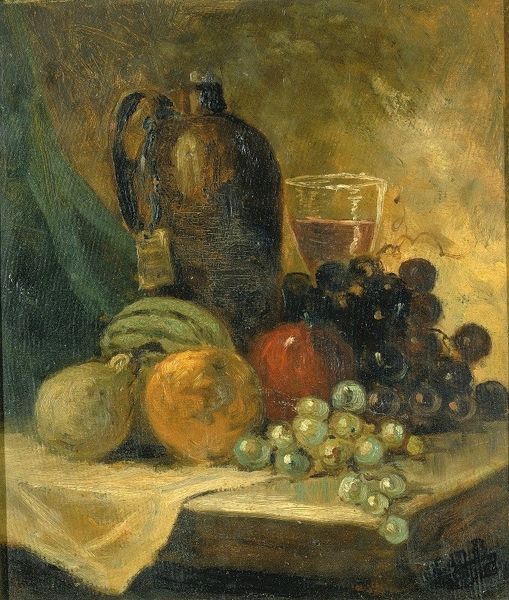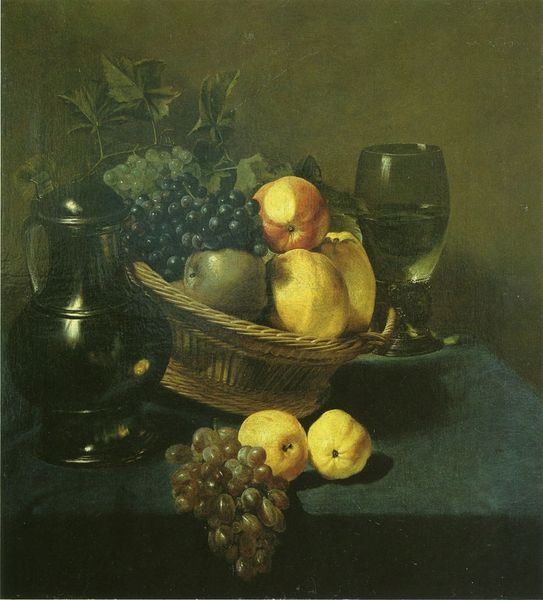
oil-paint, glass
#
gouache
#
baroque
#
oil-paint
#
glass
#
oil painting
#
fruit
#
rococo
Dimensions: 55 x 40 cm
Copyright: Public domain
Jean-Baptiste-Simeon Chardin made this still life with oil on canvas in eighteenth-century France, a period dominated by the aristocracy’s taste for the extravagant Rococo style. However, Chardin developed his own signature approach that quietly challenged the status quo. His chosen subject matter and the way he painted pushed against the grain of the French Royal Academy. The academy valued history painting above all other genres; Chardin instead focused on humble, everyday objects such as the glass flask, fruit, and drinking glass seen here. He renders these with careful attention to the fall of light and subtle variations of color. This celebration of the ordinary aligned with the emerging Enlightenment emphasis on the value of individual experience. As historians, we can turn to archival records, critical reviews, and other writings to understand the social and institutional context in which Chardin worked. When we do, it becomes clear that his art championed an alternative set of values.
Comments
No comments
Be the first to comment and join the conversation on the ultimate creative platform.
